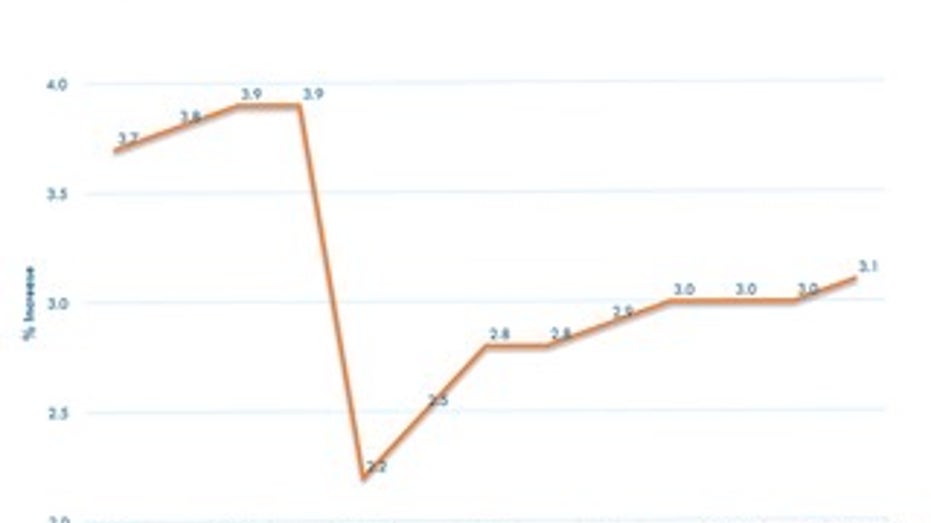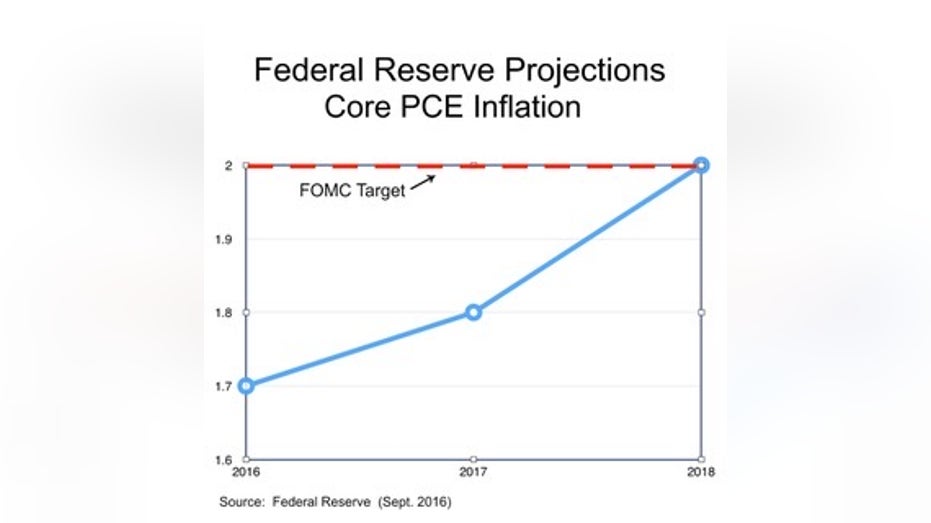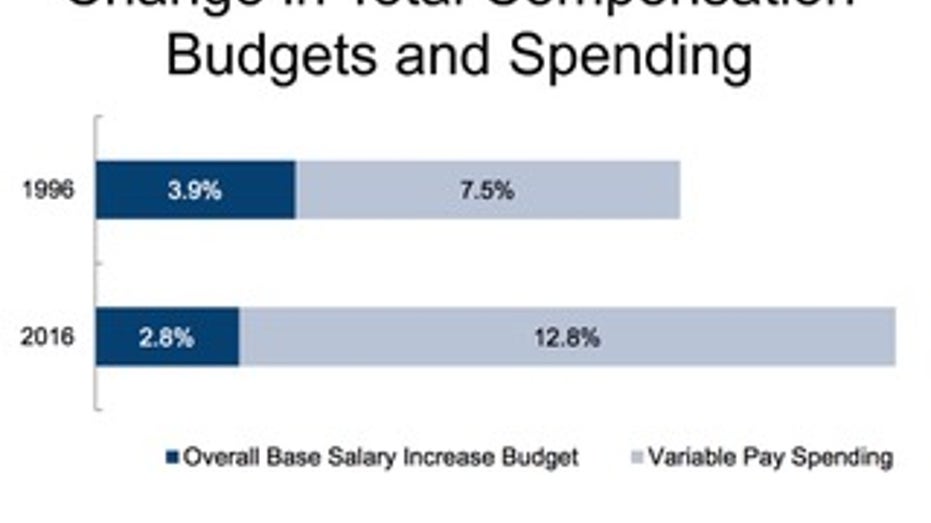Banking on a Big Raise Next Year? Don't...

The new year is soon approaching and if you are counting on a big raise in 2017, you may be disappointed. Companies are expected to boost salaries by about 3 percent on average next year, unchanged from the last three years. To put that in historical perspective, salary increases hovered around 10 percent in the early 1980s and fell to a low of nearly two percent during the financial crisis in 2009.
While salary budgets are bouncing back from the 2009 low, analysts say companies are still uncertain about the economic outlook. Companies are also under pressure to boost profits while minimizing costs and that is keeping a lid on salary increases. “There is still a sense of holding back for a rainy day, for the next swing in the market or the unexpected event that is going to happen,” says Kerry Chou of WorldatWork, a human resources association that analyzes compensation benefits. “We have this overabundance of caution and uncertainty.”

Adding to the uncertainty is the new Trump administration. Chou says it remains unclear what economic changes will be put in place and what impact those changes will have on corporate budgets. While the specifics are yet to be announced, Chou says any impact from the new presidency will likely take time to implement and salaries are not likely to be affected next year.
Look to the Federal Reserve
One indicator that could give workers clues about future salary hikes is the Federal Reserve. Chou says look specifically at interest rates and inflation. He says as interest rates and consumer prices edge up with a stronger economy, salary rates tend to increase as well.
The Federal Reserve’s preferred measure of inflation, the Personal Consumption Expenditures Index (minus food and energy), stands at 1.7 percent, still below the Federal Reserve’s 2 percent target. “If we can get the inflation rate to about 2 percent, we are much more likely to see salary budgets going up into the 4 percent range,” Chou says.

While the country waits for signs of improving economic conditions, lackluster compensation is pushing workers to seek out higher-paying positions elsewhere.
Impact of Stagnant Compensation
According to a Aon Hewitt survey, 52 percent of U.S. workers said they are open to new job opportunities and 44 percent are actively looking for a new job due to lackluster compensation. Only 38 percent of workers said they feel fairly paid.
To keep talent without adding to fixed costs, more companies are opting for variable pay options. “Companies continue to be nervous about baking in costs that they are going to have next year and the year after. So we see more variable pay such as bonuses and incentive plans, upticks in bonus plans, retention bonuses and other types of payments to employees that are really one time payments,” Chou says.
Spending for variable pay in compensation budgets increased to 12.8 percent this year while salary increase spending came in at 2.8 percent according to Aon Hewitt. The firm expects the trend to continue and variable pay is likely to remain the largest driver of compensation growth next year.

Workers in all industries are likely to see an increase in salary next year similar to the national average. Certain industries, however, will likely see a bigger increase. Workers in the entertainment, medical device and computer service industries are likely to see a slightly bigger-than-average salary increase according to Aon Hewitt.
On the flip side, employees in oil and gas production, education and transportation services may see smaller-than-average pay raises in 2017.
Above Average
Individual performance does make a difference too. Chou says high performers in a company receive about 50 percent more than an average performer when it comes time to get a raise. In other words, an average performer may see a 3 percent pay increase while a top performer may see a pay raise more like 4.5 percent. Chou says it does pay to be a top performer and if you are one, expect to see a higher-than-average salary increase next year.



















